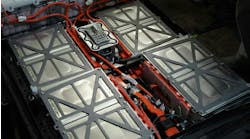I'm on a roll this week highlighting the importance of proper training and safety precautions when it comes to troubleshooting and maintaining fluid power systems. So the timing was perfect when I got word about Ross Controls' Total Machine Safety course, which I've written about in the past, being held at S.G. Morriss Co., here in Cleveland February 26-28.
The integrated electrical and fluid power machine safeguarding training program highlights ways to evaluate and design safety controls systems. It stresses the importance of understanding global safety standard requirements for lockout and machine guarding when implementing safety systems that both protect employees and promote greater productivity.
Total Machine Safety will cover topics such as Standards, Risk Assessment requirements, Lockout/Energy Isolation, Electrical and Fluid Power Safety Devices and applications, and overall machine safeguarding requirements and solutions. It provides a broad basis and understanding of what is required from a design standpoint, how to implement a machine guarding process, and how to select the components that will most effectively provide a solution while avoiding common pitfalls.
The course runs from 8 a.m. to 4:30 p.m., with a continental breakfast and lunch included. It costs $240 and includes 0.8 CEUs. Discounts are available for registering multiple students from the same company.
Contact Amanda Ansel, S.G. Morris Co., (Ross' distributor) for full course specifics at (440) 684-8198 or email [email protected].
